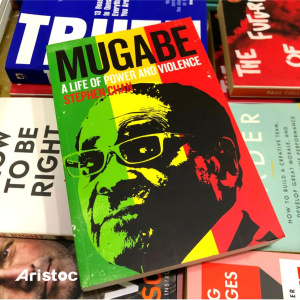
I greatly admired Mugabe, but it saddens me that despite his numerous degrees, he passed away without sharing his story or leaving behind a book that would immortalize his thoughts and vision, providing future generations with a blueprint of our national history. Now, we are left to read distorted accounts of him and our nation from our adversaries.
I find it puzzling that people like Jonathan Moyo, who recognize the significance of literature, allowed such a remarkable man to leave this world without a book or documentaries that could have given future generations our history and the blueprint of the national vision.
It appears as if we Zimbabweans are perceived as educated, yet in reality, we lack the intellectual aptitude to create literature that passes on our thoughts for the sake of continuity among future generations.
The same deficiency can be observed among our businesspeople, who lavish immense amounts of money on cars, houses, and vacations abroad but neglect to invest in writing books or producing documentaries about themselves, thus failing to pass on their knowledge, wisdom and inspiration to the next generation.
In South Africa, most politicians and businesspeople have books and biographies written about them, which is why South Africans dominate the realm of business ideas and politics in Africa. Even our children aspire to follow the South African path, yet we have much more astute entrepreneurs, making it in difficult circumstances in our own country, but their stories remain unknown.
This is also why South Africa is considered a more appealing investment destination in Africa because, by telling their stories, South Africans enhance their national brand and make it aspirational.
In contrast, Zimbabwe continues to be viewed as economically backward, associated with a gold mafia, corruption and kleptocracy, primarily because our businesspeople and politicians are not weaving the rich tapestry of our national story.
Currently, Hermann Mashaba in South Africa, has paid R12 million for his biography, yet none of our wealthier Zimbabwean billionaires have written books to position themselves or contribute to building the national heritage.
Individuals such as Mwayera, Makomva, Machipisa, Boka, Nhodza, Chitanda, Zvobgo, Chiambati, Mwamuka, and others, who were trailblazing entrepreneurs, accomplished incredible feats but departed without leaving us their stories to learn from and build upon.
Soon, Ndhlukula, Mataranyika, Nyariri, Mashwede, Mushayavanhu, Saunyama, Mutasa, Chiweshe, Musariri, Wingirai, Chigumba, Makamba, Sakupwanya, Tagwirei, Rudland, Rautenbach, Levy and others will follow suit, unless they start telling their stories now and provide us with a blueprint for nation-building.
This lack of storytelling also contributes to the suspicion surrounding the wealthy in Zimbabwe, as their wealth is often perceived as ill-gotten due to the lack of transparency in their entrepreneurial narratives.
As a nation and as individuals, we must learn to be generous enough to share our stories and discard the selfishness that compels us to conceal even the most remarkable and inspiring case studies.
For over 6000 years, our ancestors did not leave us the inheritance of written history and ideas to build upon. Consequently, the world proclaimed that we were savages who lacked inventions and history. This eroded our self-esteem, led to enslavement, and left us lagging behind in the race of life.
Now, the current generation is repeating the same mistake that previously hindered our progress, which will result in yet another generation of Africans with low self-esteem and devoid of ideas, once again left behind because those who came before them failed to provide them the inheritance of mental tools and inspiration to build upon.
By Rutendo Bereza Matinyarare, Chairman of ZASM.
https://www.iamrutendo.online/post/a-great-man-who-doesn-t-tell-his-own-story-will-have-it-told-by-his-enemies




